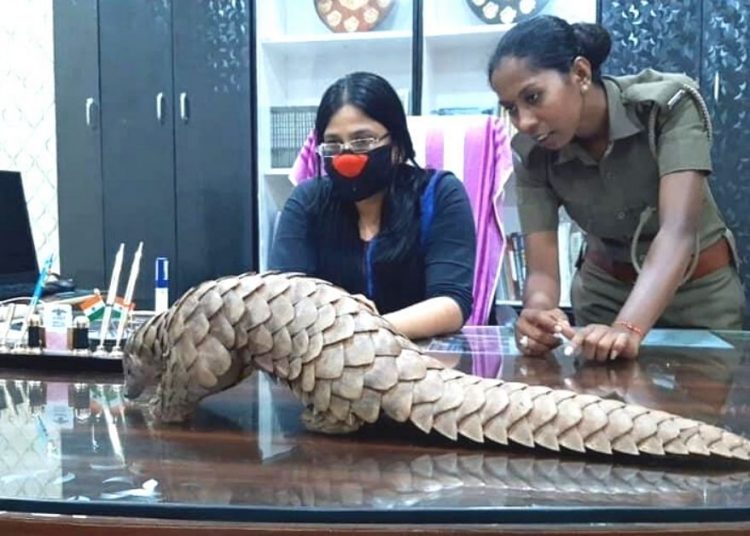There could be a pangolin in the backpack of a person standing right next to you, and you would never know. Unlike other wild animals, these mammals, which are usually about the size of a house cat, have no teeth, and do not squeak, howl, or even attack. Despite having overlapping keratin scales across their bodies, the only defence mechanism of a pangolin is to curl into a ball when it senses danger.
Such vulnerabilities make the shy and nocturnal ant-eating animal the most trafficked animal in the world, putting it on the International Union for Conservation of Nature (IUCN) red list of threatened species. The animal has high demand in international markets for its meat, blood, and scales, which are assumed to have medicinal properties. However, very little is known about the Indian pangolin, found across the Himalayan region, predominantly in Odisha.
The state has now become notorious for pangolin smuggling, where traffickers remain in hiding and work quietly from unknown…















